|
Books Should Be Free Loyal Books Free Public Domain Audiobooks & eBook Downloads |
|
|
Books Should Be Free Loyal Books Free Public Domain Audiobooks & eBook Downloads |
|
Literature |
|---|
|
Book type:
Sort by:
View by:
|
By: Samuel Johnson (1709-1784) | |
|---|---|
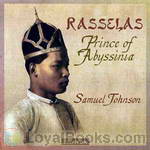 Rasselas, Prince of Abyssinia
Rasselas, Prince of Abyssinia
In this enchanting fable (subtitled The Choice of Life), Rasselas and his retinue burrow their way out of the totalitarian paradise of the Happy Valley in search of that triad of eighteenth-century aspiration – life, liberty and happiness.According to that quirky authority, James Boswell, Johnson penned his only work of prose fiction in a handful of days to cover the cost of his mother’s funeral. The stylistic elegance of the book and its wide-ranging philosophical concerns give no hint of haste or superficiality... | |
 Prayers and Meditations
Prayers and Meditations
The prayers and meditations of Samuel Johnson, published posthumously by George Strahan to whom Johnson had entrusted the manuscripts. Johnson had been writing these down for over forty years. They often show him at his most repentant, melancholy and fragile -- and the book was controversial because of it -- but they also show the goodness, sense and strength which has always characterised this great man. - Summary by Steven Watson | |
By: Samuel Merwin | |
|---|---|
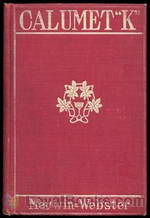 Calumet "K"
Calumet "K"
"A novel, with several elements of rather unusual interest. As a tale, it is swift, simple, and absorbing, and one does not willingly put it down until it is finished. It has to do with grain-elevator business, with railways, strikes, and commercial and financial matters generally, woven skilfully into a human story of love." --The Commercial Advertiser "'Calumet "K"' is a novel that is exciting and absorbing, but not the least bit sensational. It is the story of a rush.... The book is an unusually good story; one that shows the inner workings of the labor union, and portrays men who are the bone and sinew of the earth... | |
By: Samuel Richardson | |
|---|---|
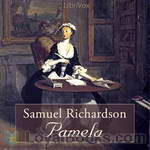 Pamela, or Virtue Rewarded
Pamela, or Virtue Rewarded
Now first Published In order to cultivate the Principles of Virtue and Religion in the Minds of the YOUTH of BOTH SEXES.A Narrative which has its Foundation in TRUTH and NATURE; and at the same time that it agreeably entertains, by a Variety of curious and affecting Incidents, is intirely divested of all those Images, which, in too many Pieces calculated for Amusement only, tend to inflame the Minds they should instruct.(From the frontspiece of the first edition)Pamela tells the story of a 14 year old lady’s maid named Pamela whose master, Mr... | |
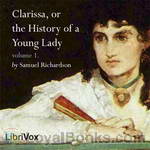 Clarissa, or the History of a Young Lady
Clarissa, or the History of a Young Lady
Clarissa Harlowe, the tragic heroine of Clarissa, is a beautiful and virtuous young lady whose family has become very wealthy only in recent years and is now eager to become part of the aristocracy by acquiring estates and titles through advantageous pairings. Clarissa’s relatives attempt to force her to marry a rich but heartless man (Roger Solmes) against her will and, more importantly, against her own sense of virtue. Desperate to remain free, she is tricked by a young gentleman of her acquaintance, Lovelace, into escaping with him. However, she refuses to marry him, longing — unusual for a girl in her time — to live by herself in peace. | |
By: Samuel Taylor Coleridge (1772-1834) | |
|---|---|
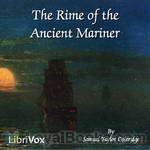 The Rime of the Ancient Mariner
The Rime of the Ancient Mariner
An exciting, compelling, and eerie ballad, The Rime of the Ancient Mariner focuses on the uncanny experiences of a sailor who has returned from a long sea voyage that has left him with a heavy burden to bear. Furthermore, the poem explores numerous themes including retribution, suffering, salvation, torment, nature, spirituality, and supernaturalism. The poem opens with the appearance of its mysterious protagonist, a skinny old man with a curious glittering eye, as he stops a young man who is on his way to attend a wedding... | |
 Answer to a Child's Question
Answer to a Child's Question
LibriVox volunteers bring you 21 recordings of Answer to a Child's Question by Samuel Taylor Coleridge. This was the Weekly Poetry project for October 6, 2013. | |
By: Sara Teasdale (1884-1933) | |
|---|---|
 Helen of Troy and Other Poems
Helen of Troy and Other Poems
| |
 India Wharf
India Wharf
Sara Teasdale was an American lyric poet. | |
By: Sara Ware Bassett (1872-1968) | |
|---|---|
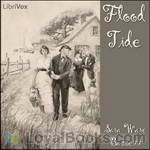 Flood Tide
Flood Tide
Willie Spence may have been a bit eccentric by most standards, but he had a knack for creating gadgets in his small workshop at his home on Cape Cod. Whenever he was 'ketched' by an 'idee' he had to see it to completion, and always did. His small cottage on the Cape had become a labyrinth of string and wires tacked here and there so as to make life a bit challenging for his housekeeper Celestina. But she and most everyone else among the coastal towns and villages loved the old man for all his eccentricities as Willie spent his waning years just waiting for his ship to come in. | |
 Story of Wool
Story of Wool
Mr. Clark and Donald spend a year out west to the Crescent Ranch in Idaho learning about raising sheep. | |
By: Sarah Orne Jewett (1849-1909) | |
|---|---|
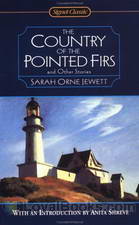 Country of the Pointed Firs
Country of the Pointed Firs
The Country of the Pointed Firs (1896) is considered Jewett’s finest work, described by Henry James as her “beautiful little quantum of achievement.” Despite James’s diminutives, the novel remains a classic. Because it is loosely structured, many critics view the book not as a novel, but a series of sketches; however, its structure is unified through both setting and theme. Jewett herself felt that her strengths as a writer lay not in plot development or dramatic tension, but in character development... | |
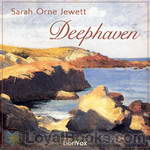 Deephaven
Deephaven
Sarah Orne Jewett is best known for her clean and clear descriptive powers that at once elevate common-place daily events to something remarkable, and lend dignity and grace to the most humble and homely human character. In Deephaven, go with her on vacation to an unforgettable seaside village where time runs slower and small pleasures are intensified. Much space is given to outdoor rambles and sights and events of daily living that draw you into another era. Jewett’s loving and gentle descriptions of the people and life of Deephaven will make you sorry when the book is over, and long to be able to find that village for yourself. | |
By: Sax Rohmer (1883-1959) | |
|---|---|
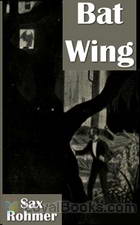 Bat Wing
Bat Wing
Private detective Paul Harley investigates a mysterious case involving voodoo, vampirism, and macabre murder in the heart of London. The first book in the Paul Harley series, written by Sax Rohmer, author of The Insidious Dr. Fu Manchu. | |
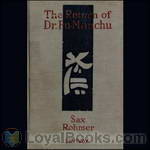 The Return of Dr. Fu-Manchu
The Return of Dr. Fu-Manchu
Burmese Commisioner Nayland Smith and his faithful friend Dr Petrie continue their fight against the evil genius of Dr Fu-Manchu when they seek to save the good doctor’s lost love and protect the British Empire from disaster when their malignant enemy returns to England. | |
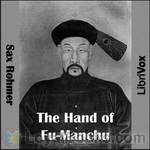 The Hand of Fu-Manchu
The Hand of Fu-Manchu
Further adventures of Nayland Smith and Doctor Petrie as they continue their battles against the evil genius, Dr Fu-Manchu. | |
 The Insidious Dr. Fu-Manchu
The Insidious Dr. Fu-Manchu
The first of the Fu-Manchu novels this story follows the two characters who are set against the machinations of the insidious doctor. | |
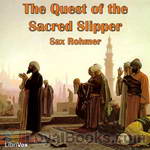 The Quest of the Sacred Slipper
The Quest of the Sacred Slipper
Cavanagh becomes involved in the adventurous search for a precious relic in the mysterious East. (Introduction by Laineyben) | |
 Dope
Dope
A minor lord is killed and a rich socialite is missing, and they are both tied to the enigmatic Kazmah the Dream Reader, who has also disappeared. New Scotland Yard Chief Inspector Red Kerry scours post-WWI London looking for clues, encountering rich Bohemians, theatre people, landed gentry, sailors, and, stereotypically, sinister Chinese people and sneaky Jews. The story is based on the history of Billie Carleton, a young English actress whose scandalous lifestyle ended with her death from a drug overdose in 1918. - Summary by TriciaG | |
By: Selma Lagerlöf (1858-1940) | |
|---|---|
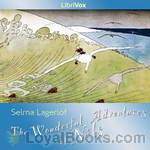 The Wonderful Adventures of Nils
The Wonderful Adventures of Nils
Selma Lagerlöf was born in Vaermland, Sweden, in 1858 and enjoyed a long and very successful career as a writer, receiving the Nobel-Price in Literature in 1909. She died in Vaermland in 1940. The Wonderful Adventures of Nils (Orig. Nils Holgerssons underbara resa genom Sverige) is a famous work of fiction by Selma Lagerlöf, published in two parts in 1906 and 1907. The background for publication was a commission from the National Teachers Association in 1902 to write a geography reader for the public schools... | |
By: Sewell Peaslee Wright (1897-1970) | |
|---|---|
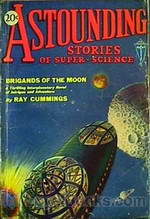 Astounding Stories 03, March 1930
Astounding Stories 03, March 1930
This is the third issue of the classic science fiction Astounding Magazine. It contains the opening chapters of a 4 part serialized novel by Ray Cummings, and stories by the prolific Capt. S. P. Meek, Will Smith and R. J. Robbins, Sewell Peaslee Wright and A. T. Locke. | |
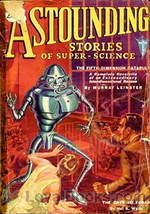 Astounding Stories 13, January 1931
Astounding Stories 13, January 1931
This issue contains "The Dark Side of Antri" by Sewell Peaslea Wright, "The Sunken Empire" by H. Thompson Rich, "The Gate to Xoran" by Hal K. Wells, "The Eye of Allah" by C. D. Willard, "The Fifth-Dimension Catapult" by Murray Leinster, and "The Pirate Planet[' by Charles W. Diffin. | |
 Astounding Stories 07, July 1930
Astounding Stories 07, July 1930
Issue seven of this seminal science-fiction magazine | |
By: Sherwood Anderson (1876-1941) | |
|---|---|
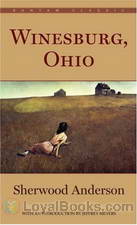 Winesburg, Ohio
Winesburg, Ohio
Anderson’s uniquely structured piece focuses on the lives of Winesburg’s most intriguing residents, as each shares a personal recount of their lives and experiences in the small town. The stories essentially intertwine to illustrate the development of George Willard, as he transforms from a heedless young man, to a man well aware of life’s trials and the extent of human misery. Exploring various themes including isolation, communication, limitation, and suffering, Winesburg, Ohio offers a glimpse into its characters heartfelt confessions... | |
By: Sidney Lanier (1842-1881) | |
|---|---|
 The Song of the Chattahoochee.
The Song of the Chattahoochee.
Sidney Clopton Lanier was an American musician, poet and author. He served in the Confederate army, worked on a blockade running ship for which he was imprisoned (resulting in his catching tuberculosis), taught, worked at a hotel where he gave musical performances, was a church organist, and worked as a lawyer. As a poet he used dialects. He became a flautist and sold poems to publications. He eventually became a university professor and is known for his adaptation of musical meter to poetry. Many schools, other structures and two lakes are named for him. | |
 My Springs
My Springs
LibriVox volunteers bring you 9 recordings of My Springs by Sidney Lanier. This was the Fortnightly Poetry project for April 7th, 2013. This rather lovely poem is the poet's tribute to his wife's eyes. | |
By: Sigrid Undset (1882-1949) | |
|---|---|
 Jenny
Jenny
Jenny Winge is a Norwegian expatriate studying art in Rome, part of a Bohemian group of friends who explore the ancient City in an intoxicating passion for Beauty. Yearning for an immortal Love, she allows herself to fall into less-than-ideal romantic relationships and then has to struggle with all her might to recover her independence. Constantly resisting conformity, she demands absolute freedom for herself while always being tempted to fall back into the comfortable ruts of provincial domesticity... | |
By: Sinclair Lewis (1885-1951) | |
|---|---|
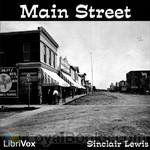 Main Street
Main Street
A social satire, Main Street became a best-seller soon after its publication, fascinating readers with its biting humor and realistic portrayal of small-town communities. Published in 1920, the novel follows Carol Milford as she moves to a conventional small town, where she encounters its conceited residents characterized by their ignorance, hypocrisy, and smugness, while simultaneously being the target of their careless ridicule. Furthermore, the novel efficiently exemplifies the dividing line between the sophisticated urban setting and the conventionally governed small-town, as it tackles issues of embracing differences, social class, disillusionment, feminism, and community... | |
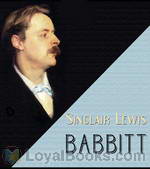 Babbitt
Babbitt
| |
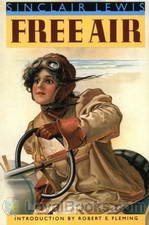 Free Air
Free Air
This road trip novel is set in the early twentieth century and follows the experiences of an aristocratic New Englander and her father as they travel by automobile from Minneapolis to Seattle. She is wooed and won by a noble but simple commoner she meets along the way. Lewis is at his usual wryly humorous self, poking fun at the upper class and treating the common people only slightly better. | |
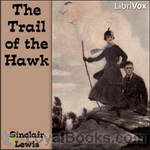 The Trail of the Hawk
The Trail of the Hawk
| |
 The Innocents, A Story for Lovers
The Innocents, A Story for Lovers
“Mr. and Mrs. Seth Appleby were almost old. They called each other 'Father' and 'Mother.' But frequently they were guilty of holding hands, or of cuddling together in corners, and Father was a person of stubborn youthfulness.” It is only by subterfuge that Seth is able every year to obtain his two week's vacation from the shoe store, and they are off to the farm-house of Uncle Joe Tubbs on Cape Cod. But this year the vacation turns into a full blown scheme to open a country tea room somewhere on Cape Cod, and their life suddenly begins to change. . . . (Introduction by Don W. Jenkins) | |
 Our Mr. Wrenn, the Romantic Adventures of a Gentle Man
Our Mr. Wrenn, the Romantic Adventures of a Gentle Man
"At thirty-four Mr. Wrenn was the sales-entry clerk of the Souvenir Company. He was always bending over bills and columns of figures at a desk behind the stock-room. He was a meek little bachelor--a person of inconspicuous blue ready-made suits, and a small unsuccessful mustache." Mr. Wrenn, however has a rich inner life embellished by his own imagination. When he comes into a modest inheritance, he feels he ought to learn to get out and wander a bit, and then his education begins. He finds life more "interesting", perhaps than he had "imagined". . . (Introduction by Don Jenkins) | |
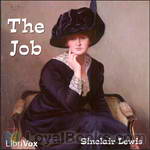 The Job
The Job
‘The Job’ is an early work by American novelist Sinclair Lewis. It is considered an early declaration of the rights of working women. The focus is on the main character, Una Golden, who desires to establish herself in a legitimate occupation while balancing the eventual need for marriage. The story takes place in the early 1900-1920’s and takes Una from a small Pennsylvania town to New York. Forced to work due to family illness, Una shows a talent for the traditional male bastion of commercial real estate and, while valued by her company, she struggles to achieve the same status of her male coworkers... | |
 Arrowsmith
Arrowsmith
This 1926 Pulitzer Prize winning novel centers on the title character, a promising medical student who, as a doctor and following several intervening ventures, becomes a medical researcher in New York. A widespread killer plague takes him to a Caribbean island to produce and inject sera and do research. Fascinating characters, some professional, others romantic, impact his life. Striking similarities of the epidemic in this novel to the pandemic of the 2020's may today seem prophetic. The author won the 1930 Nobel Prize in literature, chiefly for "Arrowsmith". | |
By: Sir Arthur Conan Doyle (1859-1930) | |
|---|---|
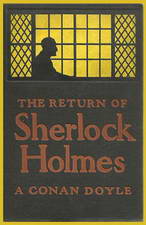 The Return of Sherlock Holmes
The Return of Sherlock Holmes
A young gambler is found shot dead in a closed room. Dr. Watson, who still mourns the disappearance of his famous friend is intrigued enough to step out of his house and take a look at the crime scene. A crowd has gathered there, curiously gazing up at the room where the crime is supposed to have taken place. Watson inadvertently jostles against an elderly, deformed man and knocks a stack of books from the fellow's hand. The man curses Watson vilely and disappears into the throng. It suddenly occurs to Watson that one of the books that he had helped the stranger pick up had seemed familiar... | |
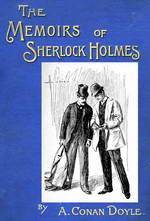 The Memoirs of Sherlock Holmes
The Memoirs of Sherlock Holmes
For more than a century and a quarter, fans of detective fiction have enjoyed the doings of the iconic sleuth, Mr. Sherlock Holmes. In the company of his faithful companion, Dr Watson, Holmes has consistently delighted generations of readers. Created by a Scottish writer and physician, Sir Arthur Conan Doyle, this immortal private eye has solved cases for kings and commoners, lovely damsels and little old ladies, engineers and country squires and a legion of others who come to him in distress and perplexity... | |
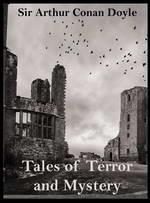 Tales of Terror and Mystery
Tales of Terror and Mystery
Though Sir Arthur Conan Doyle is best known for his detective stories, he also wrote other short stories which are masterpieces of mystery and suspense. In some of the stories in “Tales of Terror and Mystery”, a suppressed uneasiness gradually builds up and evolves into sheer terror. In others, the story line unexpectedly changes and comes to a horrific conclusion. Sit back in the comfort of your armchair and let yourself be transported to the strange but compelling world created by Sir Arthur Conan Doyle. | |
 The Sign of the Four
The Sign of the Four
A secret shared by four convicts and two prison guards, a daughter in search of her missing father, a strange gift of a single pearl received every year, a fabulous treasure buried in the ancient Agra Fort in India, an eccentric detective being consulted to solve a deadly puzzle. All these events are set against the turbulent backdrop of the Great Indian Mutiny of 1857 in the second Sherlock Holmes novel by Sir Arthur Conan Doyle, The Sign of the Four. Mary Morstan, a lovely young woman, comes to the Baker Street lodgings shared by Holmes and Dr Watson... | |
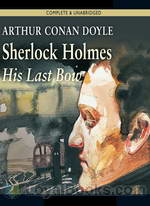 His Last Bow
His Last Bow
The disappearance of a German spy and the gathering storm that foretells the prelude to World War I is what greets you in this riveting book. The further you read the more mysteries unfold like secret submarine plans with some pages missing found in the hands of a corpse. There's also family insanity in Cornwall, a dead Spaniard and mafia hiding in an empty London flat. His Last Bow was published in the Strand Magazine circa 1908 and included several other short stories as well. Even during Sir Arthur Conan Doyle's own lifetime, Holmes had acquired cult status... | |
 The Valley of Fear
The Valley of Fear
Doyle's final novel featuring the beloved sleuth, Sherlock Holmes, brings the detective and his friend to a country manor where they are preceded by either a murder or a suicide. A secretive organization lies culprit and an infiltration of it is in order. | |
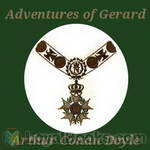 The Adventures of Gerard
The Adventures of Gerard
These lesser known stories were penned by Conan Doyle during the period between killing off Sherlock Holmes in 1893 and reluctantly resurrecting him some ten years later. The swashbuckling, eponymous hero, Etienne Gerard, is one of Napoleon's gallant French Hussars, who considers himself the finest of them all. Through these "Boys Own Adventures", Conan Doyle pokes gentle fun at both the French and the English. This is the second volume containing eight adventures. | |
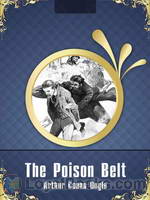 The Poison Belt
The Poison Belt
Three years after the events that took place in The Lost World, Professor Challenger urgently summons his fellow explorers (Professor Summerlee, Lord John Roxton, and reporter E.D. Malone) to a meeting. Oddly, he requires each to bring an oxygen cylinder with him. What he soon informs them is that from astronomical data and just-received telegraphs of strange accidents on the other side of the world, he has deduced that the Earth is starting to move through a region of space containing something poisonous to humankind... | |
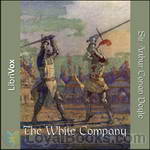 The White Company
The White Company
Set during the Hundred Years’ War with France, The White Company tells the story of a young Saxon man who is learning what it is to be a knight. Raised by Cistercian Monks and rejected by a violent elder brother, Alleyn Edricson takes service with one of the foremost knights in the country. When Alleyn falls in love with the knight’s daughter, he must prove himself to be a courageous and honourable knight before he can win her hand. Alleyn and his friends set forth with the other men-at-arms to join Prince Edward in Bordeaux, from where they will take part in the Prince’s campaign into Spain... | |
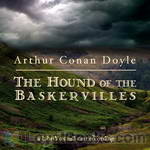 The Hound of the Baskervilles (dramatic reading)
The Hound of the Baskervilles (dramatic reading)
The Hound of the Baskervilles is the third of four crime novels by Sir Arthur Conan Doyle featuring the detective Sherlock Holmes. Originally serialised in The Strand Magazine from August 1901 to April 1902, it is set largely on Dartmoor in Devon in England's West Country and tells the story of an attempted murder inspired by the legend of a fearsome, diabolical hound. | |
 The Mystery of Cloomber
The Mystery of Cloomber
This novel is written by the author of, among other novels, the Stories of Sherlock Holmes. It is narrated by John Fothergill West, who tries to discover why the tenant of Cloomber Hall, General Heatherstone, is nervous to the point of being paranoid. Why are his fears becoming stronger every year at the fifth of October? And why doesn't he let his children leave home? This is a great mystery novel with a sharp twist at the end. | |
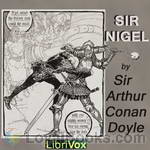 Sir Nigel
Sir Nigel
By 1348 the House of Loring has fallen on hard times. Together, the Black Death and the greedy monks of Waverley have bled away all of the Loring wealth. Even the manor house will have to go to pay their debts.Then a chance encounter with the King of England provides Nigel, the last of the Lorings, with the chance to seek his fortune in the constant wars with France. But more importantly for Nigel it also means that he may be able to do the "three small deeds" that will show he is worthy to ask for the hand of the Lady Mary in marriage.Filled with chivalry, humour, and high romance, Sir Nigel is simply a rattling good yarn. | |
 Captain of the Polestar, and other tales
Captain of the Polestar, and other tales
This is a collection of early Sir Arthur Conan Doyle short stories. It includes stories of mystery, comedy, shipwrecks and fantasy. | |
 Danger! and Other Stories
Danger! and Other Stories
This is a volume of short stories by the famous Arthur Conan Doyle. | |
 Round the Red Lamp: Being Facts and Fancies of Medical Life
Round the Red Lamp: Being Facts and Fancies of Medical Life
This is a collection of short stories focussing on the problems that present themselves to physicians and surgeons in the course of their work. The volume is named "Round the Red Lamp" as a reference to the red lamps that marked general practitioner's offices in Arthur Conan Doyle's times. | |
 Desert Drama: Being the Tragedy Of The Korosko
Desert Drama: Being the Tragedy Of The Korosko
Also published under the title The Tragedy of the Korosko (1898). A group of European tourists are enjoying their trip to Egypt in the year 1895. They are sailing up the River Nile in a "a turtle-bottomed, round-bowed stern-wheeler", the Korosko. They intend to travel to Abousir at the southern frontier of Egypt, after which the Dervish country starts. They are attacked and abducted by a marauding band of Dervish warriors. The novel contains a strong defence of British Imperialism and in particular the Imperial project in North Africa. It also reveals the very great suspicion of Islam felt by many Europeans at the time. | |
 Through the Magic Door
Through the Magic Door
I care not how humble your bookshelf may be, nor how lowly the room which it adorns. Close the door of that room behind you, shut off with it all the cares of the outer world, plunge back into the soothing company of the great dead, and then you are through the magic portal into that fair land whither worry and vexation can follow you no more. You have left all that is vulgar and all that is sordid behind you. There stand your noble, silent comrades, waiting in their ranks. Pass your eye down their files... | |
 Stark Munro Letters
Stark Munro Letters
"The letters of my friend Mr. Stark Munro appear to me to form so connected a whole, and to give so plain an account of some of the troubles which a young man may be called upon to face right away at the outset of his career, that I have handed them over to the gentleman who is about to edit them. There are two of them, the fifth and the ninth, from which some excisions are necessary; but in the main I hope that they may be reproduced as they stand. I am sure that there is no privilege which my friend... | |
 Doings of Raffles Haw
Doings of Raffles Haw
The people of the small town of Tamfield are not used to exciting things happening. When millionaire Raffles Haw moves to town, rumors spread like wildfire about him. The advent of Mr. Haw, however, changes the town, and particularly the lives of the McIntyre family, in ways no one could ever have guessed. | |
 Songs of the Road
Songs of the Road
Although best known for the creation of the detective Sherlock Holmes, Arthur Conan Doyle did not only write works of mystery and of advenure - he was also a rather successful poet. This is a collection of poems written by the famous author. | |
 Songs of Action
Songs of Action
This is a collection of poems by Arthur Conan Doyle centering around the theme of war, action and adventure. | |
By: Sir Hall Caine | |
|---|---|
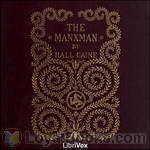 The Manxman
The Manxman
Sir Thomas Henry Hall Caine, CH, KBE (14 May 1853 – 31 August 1931), usually known as Hall Caine, was a British author. He is best known as a novelist and playright of the late Victorian and the Edwardian eras. In his time he was exceedingly popular and at the peak of his success and his novels outsold those of his contemporaries. Many of his novels were also made into films. His novels were primarily romantic in nature, involving the love triangle, but they did also address some of the more serious political and social issues of the day... | |
By: Sir Harry Johnston (1858-1927) | |
|---|---|
 Mrs. Warren's Daughter
Mrs. Warren's Daughter
Mrs. Warren's Daughter is a continuation, in novel form, of George Bernard Shaw's controversial play, Mrs. Warren's Profession. In the play, Vivie Warren, an emancipated young woman recently graduated from University, disavows her mother Kitty when she learns that Kitty's fortune comes from an ownership share in an international string of brothels, and that Kitty herself was once a prostitute. This novel, written by a world renowned botanist, explorer, and colonial administrator, follows Vivie's personal and political adventures through her involvement in the Suffragist movement and the years leading up to and during World War I. | |
By: Sir Philip Sidney (1554-1586) | |
|---|---|
 Countess of Pembroke's Arcadia
Countess of Pembroke's Arcadia
Arcadia is a prose work by Sir Philip Sidney, a classic of the Renaissance pastoral and a work of high romance, a fleeting vision of a lost world of gallantry and adventure, representing an escape from the realities of politics in the Elizabethan court. It contributes to the ongoing legend of Sidney as the perfect Renaissance man, "soldier, scholar, horseman he/And all he did done perfectly". | |
By: Sir Stephen King-Hall | |
|---|---|
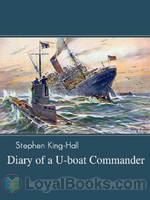 Diary of a U-boat Commander
Diary of a U-boat Commander
The infamous U boats deployed by Germany in the two World Wars have spawned several works of fiction and non-fiction. These deadly vessels were not just efficient and lethal killing machines, but they were also used very effectively in economic blockades. They were positioned primarily to obstruct the conveyance of fuel, food and other essential supplies which the enemy needed to sustain the war effort. In the Diary of a U Boat Commander, the author, Stephen King-Hall draws upon his vast personal experiences as a naval officer in World War I... | |
By: Sir Thomas Malory | |
|---|---|
 Le Morte d'Arthur
Le Morte d'Arthur
Le Morte d’Arthur (spelled Le Morte Darthur in the first printing and also in some modern editions, Middle French for la mort d’Arthur, “the death of Arthur”) is Sir Thomas Malory’s compilation of some French and English Arthurian romances. The book contains some of Malory’s own original material (the Gareth story) and retells the older stories in light of Malory’s own views and interpretations. First published in 1485 by William Caxton, Le Morte d’Arthur is perhaps the best-known work of English-language Arthurian literature today. Many modern Arthurian writers have used Malory as their source, including T. H. White for his popular The Once and Future King. | |
By: Sir Walter Scott (1771-1832) | |
|---|---|
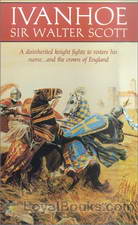 Ivanhoe
Ivanhoe
Medieval England in the 12th century. The evil Prince John rules England in place of his brother, the noble Richard the Lionheart, who is being held in an Austrian prison by Duke Leopold of Austria, while returning from one of his Crusades. Under the avaricious and Machiavellian John, the Norman aristocrats are in constant conflict with the native Saxon people. Ivanhoe by Sir Walter Scott is set in these turbulent times. The eponymous hero, Wilfred of Ivanhoe, the son of a Saxon nobleman has been disinherited by his father for following King Richard into war... | |
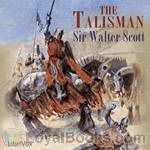 The Talisman
The Talisman
The Talisman is a gripping tale set near the end of the Third Crusade. King Richard the Lionheart is grievously ill, and all around him the leaders from allied countries plot and scheme to gain personal power, putting the future of the crusade in jeopardy. Sir Kenneth of Scotland finds himself caught up in events, and finds both his honour and his life are now on the line. Can a cure be found for the King? Can Kenneth redeem his honour? – Written by Rowen. | |
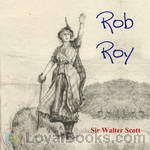 Rob Roy
Rob Roy
Rob Roy is a historical novel by Walter Scott. It is narrated by Frank Osbaldistone, the son of an English merchant who travels first to the North of England, and subsequently to the Scottish Highlands to collect a debt stolen from his father. On the way he encounters the larger-than-life title character of Rob Roy MacGregor. Though Rob Roy is not the lead character (in fact the narrative does not move to Scotland until half way through the book) his personality and actions are key to the development of the novel. | |
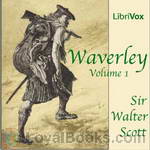 Waverley
Waverley
Waverley is set during the Jacobite Rebellion of 1745, which sought to restore the Stuart dynasty in the person of Charles Edward Stuart (or 'Bonnie Prince Charlie'). It relates the story of a young dreamer and English soldier, Edward Waverley, who was sent to Scotland in 1745. He journeys North from his aristocratic family home, Waverley-Honour, in the south of England first to the Scottish Lowlands and the home of family friend Baron Bradwardine, then into the Highlands and the heart of the 1745 Jacobite uprising and aftermath. | |
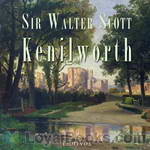 Kenilworth
Kenilworth
An Elizabethan era historical novel by Scotland’s master of fiction, Sir Walter Scott. With a cast of historical and created characters, including the Queen herself, Scott presents the sad history and tragic consequences of the secretive marriage of young Amy Robsart and the Earl of Leicester. (Summary by SK) | |
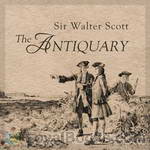 The Antiquary
The Antiquary
Illegitimacy, false identity, and bankruptcy are the major elements of Sir Walter Scott's 1816 novel, The Antiquary. Set in the period of the French Revolution, the novel's hero, Lovel, struggles to gain repute and the hand of his beloved despite his uncertain parentage. During these pursuits, he befriends the title's antiquary, Johnathan Oldbuck, who finds Lovel a captive audience to his scholarly studies and a tragic likeness to his own disappointments in love. Readers will discover whether Lovel's acts of bravery and courage ultimately earn him the birth and fortunes of a nobleman. | |
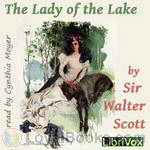 The Lady of the Lake
The Lady of the Lake
The scene of the following Poem is laid chiefly in the vicinity of Loch Katrine, in the Western Highlands of Perthshire. The time of Action includes Six Days, and the transactions of each Day occupy a Canto. | |
 Fortunes of Nigel
Fortunes of Nigel
During the turbulent moment in English history involving King James 1 and 6, Nigel Olifaunt, a Scottish lord, seeks to protect his family home and holdings, but meets with recalcitrance and treachery, which eventually results in his imprisonment. But there are forces of good that help to set him free and right injustices. | |
By: Somerset Maugham | |
|---|---|
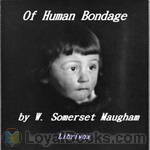 Of Human Bondage
Of Human Bondage
Of Human Bondage, published in 1915, is considered to be W. Somerset Maugham’s best work. Many believe the novel to be one of the world’s literary masterpieces. The story follows Phillip Carey from early childhood through his 30’s. Orphaned at 9, Phillip spends his early years raised by his childless aunt and uncle. His aunt tries to be a mother to Philip, but she is unsure how to behave whereas his uncle, a vicar, takes a cold disposition towards him. Philip is sent to a boarding school but his shyness and his club foot make it difficult for him to fit in... | |
By: Sophocles (495-406 BC) | |
|---|---|
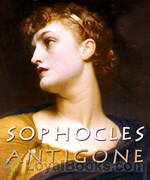 Antigone
Antigone
This is the final installment in Sophocles's Theban Plays, following Oedipus Rex and Oedipus at Colonus. Oedipus's daughter Antigone deliberately breaks the laws of Thebes when she buries her brother's body and is sentenced to death. She clashes with Creon, the King of Thebes, over what constitutes justice and morality: the laws of the state or the laws of the individual. | |
By: Soren Kierkegaard (1813-1855) | |
|---|---|
 In Vino Veritas, from Stages on Life’s Way
In Vino Veritas, from Stages on Life’s Way
In Vino Veritas is one section of Kierkegaard's Stages on Life's Way, originally published in 1845. In a conscious reference to Plato's Symposium, it is determined that each participant must give a speech, and that their topic shall be love. Lee M. Hollander said, "it excels Plato's work in subtlety, richness, and refined humor. To be sure, Kierkegaard has charged his creation with such romantic superabundance of delicate observations and rococo ornament that the whole comes dangerously near being improbable; whereas the older work stands solidly in reality... | |
 Fear and Trembling (selections)
Fear and Trembling (selections)
"And God tempted Abraham and said unto him: take Isaac, thine only son, whom thou lovest and go to the land Moriah and sacrifice him there on a mountain which I shall show thee. Genesis 22:1" Soren Kierkegaard wondered how Abraham made the movement of faith that made him the father of faith mentioned in the New Testament . Fear and Trembling is the product of his wonder. Work out your salvation in fear and trembling . One-third of "Fear and Trembling" was translated in 1923 by Lee Hollander in the University of Texas Bulliten. This book has already been read in parts in the Short Nonfiction Collection but I think some might be interested in listening to it as a complete reading. | |
By: Sōseki Natsume (1867-1916) | |
|---|---|
 Botchan
Botchan
Botchan is the story of a young math teacher from Tokyo whose first assignment takes him to a middle school in the country side. His arrival there is not very lucky: The pupils are bound to test his perseverance and cheerily comments every one of his perceived missteps. In the teacher's room, he soon finds himself in the middle of an intrigue between the jovial "Porcupine" and the fat "Hubbard Squash" on one side, and the effeminate "Red Shirt" and his follower "Clown" on the other. Will Botchan choose the right side in the end? Botchan - with morality as the main theme - is one of the most popular novels in Japan... | |
 I Am A Cat (excerpt)
I Am A Cat (excerpt)
These are the first two chapters of Natsume Sōseki's masterpiece, "I Am A Cat" . It is recognized as a landmark of modern Japanese literature, with its humorous but insightful depiction of society as seen through the eyes of a cat. The full work was published in serial form, in ten installments, in 1905-1906. Soon after, Kan-ichi Ando published an English translation of the first two chapters. Sadly, there is no translation of the full work in the public domain, but because of its episodic structure, this excerpt can easily stand on its own. - Summary by Peter Eastman | |
By: Stanley Grauman Weinbaum (1902-1935) | |
|---|---|
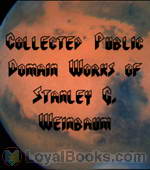 Works of Stanley G. Weinbaum - A Martian Odyssey
Works of Stanley G. Weinbaum - A Martian Odyssey
Stanley G. Weinbaum is best known for his short story “A Martian Odyssey” which has been influencing Science Fiction since it was first published in 1934. Weinbaum is considered the first writer to contrive an alien who thought as well as a human, but not like a human. A Martian Odyssey and its sequel are presented here as well as other Weinbaum gems including 3 stories featuring the egomaniacal physicist Haskel van Manderpootz and his former student, playboy Dixon Wells. | |
By: Steele Rudd (1868-1935) | |
|---|---|
 On Our Selection
On Our Selection
The humorous account of Dad and Dave and the rest of the Rudd clan as they attempt to carve a farming 'selection' out of the Australian wilderness in spite of fire, famine, snakebite, and a loony hired hand. | |
By: Stendhal | |
|---|---|
 The Red and the Black, Volume I
The Red and the Black, Volume I
Stendhal - a German pen-name for a French writer who hated the English. Contemporary to some of the great names of French literature like Balzac and Flaubert, Stendhal is quite often considered a writer that doesn't seem to fit a defined genre. Some say he's a Romantic, others that he's a Modernist and that Le Rouge et Le Noir is the first modern novel. On one point they are all agreed: the novel is a masterpiece that shows a young theology student - Julien Sorel - intelligent, handsome and who is determined to rise above his humble peasant origins... | |
By: Stephen Crane (1871-1900) | |
|---|---|
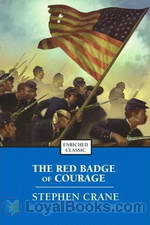 The Red Badge of Courage
The Red Badge of Courage
The Red Badge of Courage is a fiction that tells the story of a soldier named Henry Fleming during the American Civil War. The novel gained widespread praise from critics and was also a commercial success shortly after its release and made Stephen Crane an instant celebrity at the young age of 24. In the novel, Henry was one of the enlisted soldiers in the 304th New York Regiment. He flees from battle in one of the skirmishes they had against the Confederates and to hide his cowardice, he attempted to inflict a wound to himself which is referred to as the “red badge of courage... | |
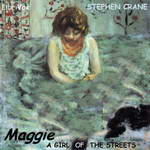 Maggie: A Girl of the Streets
Maggie: A Girl of the Streets
Stephen Crane’s first novel, Maggie: A Girl of the Streets has been called “the first dark flower of American Naturalism” for its distinctive elements of naturalistic fiction. The chief character, Maggie, descends into prostitution after being led astray by her lover. Rather than focusing on those that make up the very rich or middle class, the novel highlights the deplorable living conditions of the working class during the so-called Gilded Age in New York’s Bowery. | |
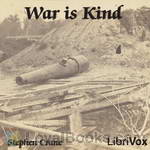 War is Kind (collection)
War is Kind (collection)
Published in 1899, just a year before his death, War Is Kind by Stephen Crane evokes again the dark imagery of war which made his fortune in The Red Badge Of Courage. Unlike that book, this collection leaves the battlefield itself behind to explore the damage war does to people’s hearts and minds. Reeking of dashed hopes, simultaneously sympathetic with the victims of war and cynical about the purposes of war, Crane implicitly criticizes the image of the romantic hero and asks if Love can survive... | |
By: Stephen Leacock (1869-1944) | |
|---|---|
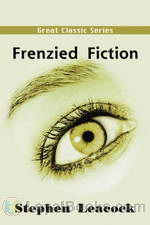 Frenzied Fiction
Frenzied Fiction
From the cave man to Santa Claus; spies, know-it-alls, and journalists: all are fair game for Leacock’s special brand of humor. He touches on the changes time has brought about in the city, education, and work habits. Among the other topics in this work are nature, fishing, gardening, success, and spirits–both of the departed and of the variety Prohibition prohibited. Each chapter of this book is a standalone story and if you love a good laugh, these stories are for you. In me, Leacock’s wit produced the full range of laughter: smiles, chuckles, guffaws, and some uncontrollable giggles. Also, occasionally, I found myself shedding a tear or two. (Review by Debra Lynn) | |
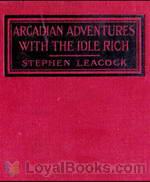 Arcadian Adventures with the Idle Rich
Arcadian Adventures with the Idle Rich
“Arcadian Adventures with the Idle Rich” is a work of humorous fiction by Stephen Leacock first published in 1914. It is the follow-up to his 1912 classic “Sunshine Sketches of a Little Town.” Like that work, it is a sequence of interlocking stories set in one town, but instead of focusing on a small Canadian town in the countryside, it is set in a major American metropolis and its characters are the upper crust of society. Although currently not as well-known as the earlier book, “Arcadian Adventures” was extremely popular in North America at the time of its publication and for a while was considered the greater success... | |
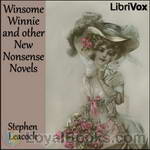 Winsome Winnie and other New Nonsense Novels
Winsome Winnie and other New Nonsense Novels
Eight silly stories by Canadian humourist Stephen Leacock. | |
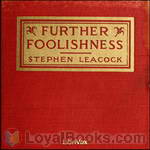 Further Foolishness
Further Foolishness
Seventeen goofy stories and essays by Canadian humourist Stephen Leacock. "Professor Leacock has made more people laugh with the written word than any other living author. One may say he is one of the greatest jesters, the greatest humorist of the age." – A. P. Herbert (Introduction by TriciaG & Wikipedia) | |
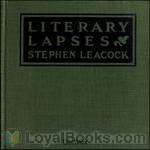 Literary Lapses
Literary Lapses
Short sketches relating the humourous side of life in 1910. "Professor Leacock has made more people laugh with the written word than any other living author. One may say he is one of the greatest jesters, the greatest humorist of the age." – A. P. Herbert | |
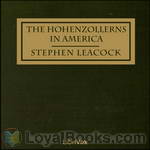 The Hohenzollerns in America
The Hohenzollerns in America
More stories by Canadian Stephen Leacock. Some of these stories carry over characters introduced in Further Foolishness. Some stories are humourous; some are more thoughtful. It helps to be familiar with WWI-era European politics to catch much of the humour. Full title: The Hohenzollerns in America With the Bolsheviks in Berlin and Other Impossibilities | |
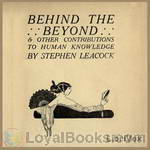 Behind the Beyond
Behind the Beyond
A collection containing a parody on Problem Plays, as well as humorous anecdotes from Canadian humourist Stephen Leacock. | |
 Moonbeams from the Larger Lunacy
Moonbeams from the Larger Lunacy
Humorous, ironic, and sometimes cynical observations of life in 1915 from Canadian humourist Stephen Leacock. | |
 My Discovery of England
My Discovery of England
"In the course of time a very considerable public feeling was aroused in the United States and Canada over this state of affairs. The lack of reciprocity in it seemed unfair. It was felt (or at least I felt) that the time had come when some one ought to go over and take some impressions off England. The choice of such a person (my choice) fell upon myself. By an arrangement with the Geographical Society of America, acting in conjunction with the Royal Geographical Society of England (to both of whom I communicated my proposal), I went at my own expense."And from thence follow the impressions of Canadian political economist and humourist, Stephen Leacock, after a lecturing visit to England. | |
 Essays and Literary Studies
Essays and Literary Studies
A collection of wry looks at literature, education, and other social phenomena by Canadian humourist and economics professor, Stephen Leacock. | |
By: Stephen Vincent Benét (1898-1943) | |
|---|---|
 A Selection from Young Adventure, A Book of Poems
A Selection from Young Adventure, A Book of Poems
Stephen Vincent Benét (July 22, 1898 – March 13, 1943) was an American author, poet, short story writer and novelist. He is best known for his book-length narrative poem of the American Civil War, John Brown’s Body (1928), for which he won a Pulitzer Prize in 1929, and for two short stories, “The Devil and Daniel Webster” and “By the Waters of Babylon”. It was a line of Benét’s poetry that gave the title to Dee Brown’s famous history of the destruction of Native American tribes by the United States: Bury My Heart at Wounded Knee. | |
By: Stewart Edward White (1873-1946) | |
|---|---|
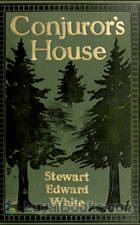 Conjuror's House, a Romance of the Free Forest
Conjuror's House, a Romance of the Free Forest
In the northern outreaches of the Canadian wilderness, it was understood that the Hudson Bay Company governed all trading, and one factor named Galen Albret took his position seriously. Free traders, or those who dared try to do their trading outside of the Company, found themselves having to face Galen Albret and his methods of dealing with them. One or two offenses he might tolerate, but for those who repeatedly refuse to acknowledge his warning out, he would send them on “La Longue Traverse” through the wilderness without supplies, and from which they seldom returned... | |
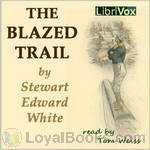 The Blazed Trail
The Blazed Trail
Stewart Edward White wrote fiction and non-fiction about adventure and travel, with an emphasis on natural history and outdoor living. White's books were popular at a time when America was losing its vanishing wilderness and many are based on his experiences in mining and lumber camps. The Blazed Trail is the story of early lumbermen in the northern woods of Michigan. The novel portrays the challenges faced by the workers focusing on one, Harry Thorpe, as he endeavors to be successful though completely unskilled when he enters the woods... | |
 Arizona Nights
Arizona Nights
Arizona Nights is a collection of tales from the American West as told by those who took part in them. | |
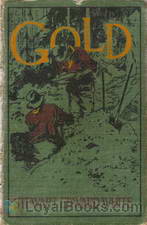 Gold
Gold
This is a well written story of the California gold rush of 1849. Four friends decide they are going to go to California and get rich in the gold fields. Follow their adventures as they travel to California across the isthmus of Panama to San Francisco. In their search for gold they encounter hostile Indians, various desperadoes, and natural disasters. Did they strike it rich? Listen and find out. | |
 Blazed Trail Stories and Stories Of The Wild Life
Blazed Trail Stories and Stories Of The Wild Life
Thirteen short stories by a popular writer of the early 20th century (not to be confused with an earlier book Blazed Trail). White's books were popular at a time when America was losing its vanishing wilderness. He was a keen observer of the beauties of nature and human nature, yet could render them in a plain-spoken style. Based on his own experience, whether writing camping journals or Westerns, he included pithy and fun details about cabin-building, canoeing, logging, gold-hunting, and guns and fishing and hunting... | |
By: Susan Coolidge (1835-1905) | |
|---|---|
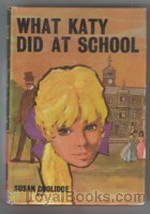 What Katy Did at School
What Katy Did at School
The continuing story of Katy Carr, recounting the time she spent at boarding school with her sister Clover. | |
 Verses
Verses
Susan Coolidge was the pen name of Sarah Chauncey Woolsey, who is best known for her What Katy Did series. This is the first of three volumes of her verse. | |
By: Susan Glaspell (1876-1948) | |
|---|---|
 Lifted Masks
Lifted Masks
In this collection of short stories, Susan Glaspell examines the unique character of America and its people. | |